
The Timeless Wonders of Ayutthaya Province
Ayutthaya Province, located just north of Bangkok, is a treasure trove of history and culture. Once the capital of the Kingdom of Siam, Ayutthaya is now a UNESCO World Heritage Site. The province is dotted with magnificent ruins of palaces, temples, and statues that tell tales of its glorious past. A visit to Ayutthaya is like stepping back in time. The ancient city is filled with impressive structures such as Wat Phra Si Sanphet, Wat Mahathat, and Wat Chaiwatthanaram. Each monument showcases unique architectural styles and intricate details that reflect the rich cultural heritage of Thailand. You can explore these historic sites by foot, tuk-tuk, or even by renting a bicycle. In addition to its historical significance, Ayutthaya offers a serene escape from the hustle and bustle of Bangkok. The Chao Phraya River flows through the province, providing picturesque views and a peaceful ambiance. You can enjoy a boat tour along the river to see the ruins from a different perspective or visit the floating markets to experience local life and sample delicious Thai food.
Local tips in Ayutthaya Province
- Explore the ruins early in the morning to avoid the heat and crowds.
- Rent a bicycle to navigate the historical park conveniently and at your own pace.
- Don't miss the boat tour along the Chao Phraya River for unique views of the temples.
- Visit the Ayutthaya Floating Market to experience local culture and try delicious Thai street food.
- Wear comfortable shoes and carry a hat and sunscreen, as you'll be spending a lot of time outdoors.
The Timeless Wonders of Ayutthaya Province
Ayutthaya Province, located just north of Bangkok, is a treasure trove of history and culture. Once the capital of the Kingdom of Siam, Ayutthaya is now a UNESCO World Heritage Site. The province is dotted with magnificent ruins of palaces, temples, and statues that tell tales of its glorious past. A visit to Ayutthaya is like stepping back in time. The ancient city is filled with impressive structures such as Wat Phra Si Sanphet, Wat Mahathat, and Wat Chaiwatthanaram. Each monument showcases unique architectural styles and intricate details that reflect the rich cultural heritage of Thailand. You can explore these historic sites by foot, tuk-tuk, or even by renting a bicycle. In addition to its historical significance, Ayutthaya offers a serene escape from the hustle and bustle of Bangkok. The Chao Phraya River flows through the province, providing picturesque views and a peaceful ambiance. You can enjoy a boat tour along the river to see the ruins from a different perspective or visit the floating markets to experience local life and sample delicious Thai food.
When is the best time to go to Ayutthaya Province?
Iconic landmarks you can’t miss
Wat Yai Chai Mongkhon
Discover the serene beauty and rich history of Wat Yai Chai Mongkhon, a must-visit Buddhist temple in Ayutthaya, Thailand.
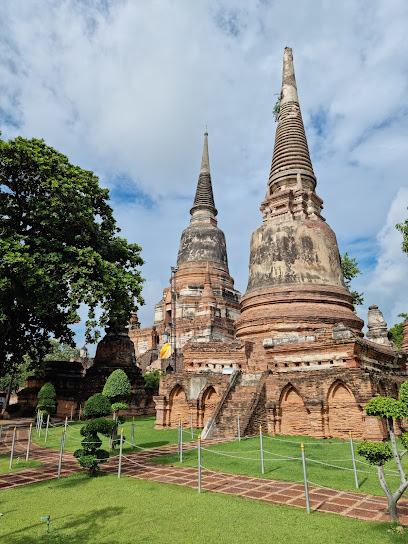
Wat Mahathat
Discover the spiritual heart of Ayutthaya at Wat Mahathat, a UNESCO World Heritage Site showcasing Thailand's rich history and stunning architecture.
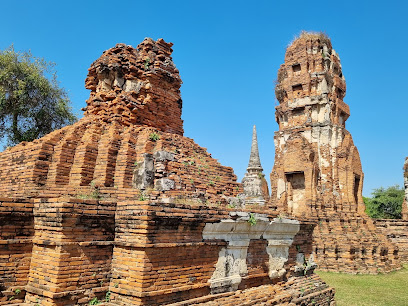
Wat Chaiwatthanaram
Discover the historical beauty of Wat Chaiwatthanaram, a stunning Buddhist temple in Ayutthaya, showcasing Khmer architecture and rich cultural heritage.
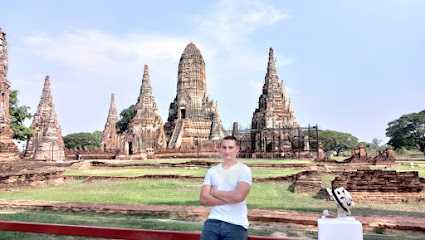
Ayothaya Floating Market
Experience the vibrant culture and delicious flavors at Ayothaya Floating Market in the heart of historic Ayutthaya, Thailand.
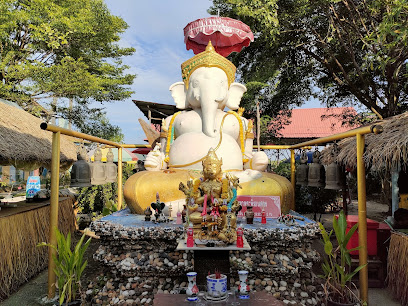
Wat Phra Si Sanphet
Discover the historical splendor of Wat Phra Si Sanphet, an iconic Buddhist temple in Ayutthaya, and immerse yourself in Thailand's rich cultural heritage.
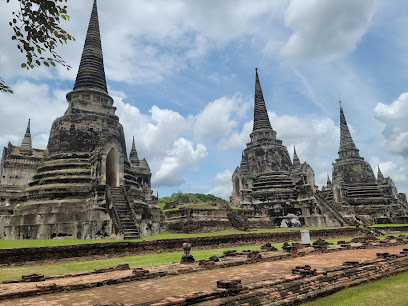
Bang Pa-In Palace
Discover the enchanting Bang Pa-In Palace, Thailand's Summer Palace, where history, beauty, and royal heritage await every visitor.
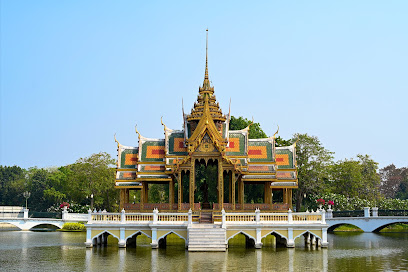
Wat Na Phra Meru Rachikaram
Explore the serene Wat Na Phra Meru Rachikaram, a stunning Buddhist temple in Ayutthaya, rich in history and architectural beauty.
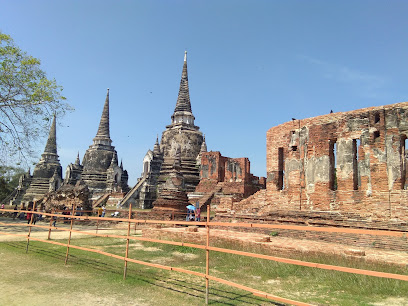
Wat Lokkayasutha
Discover the serene beauty of Wat Lokkayasutha in Ayutthaya, home to a majestic reclining Buddha and rich historical significance.
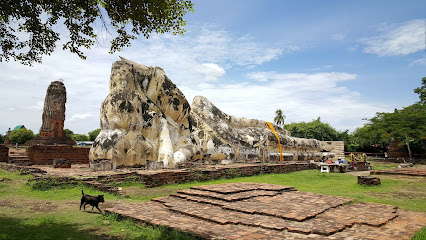
Wihan Phra Mongkhon Bophit
Discover the serene beauty and rich cultural heritage of Wihan Phra Mongkhon Bophit, a stunning Buddhist temple in Ayutthaya, Thailand.
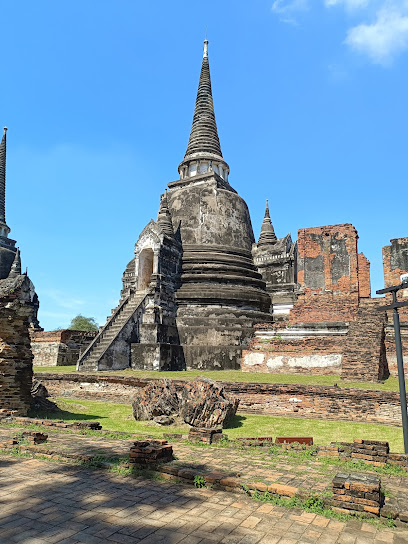
Ayutthaya Historical Park Office
Discover the ancient wonders of Ayutthaya Historical Park, a UNESCO World Heritage Site filled with breathtaking ruins and rich cultural heritage.

Ayutthaya Elephant Palace & Royal Kraal
Discover the enchanting Ayutthaya Elephant Palace & Royal Kraal, where Thai culture and majestic elephants intertwine in a historic setting.
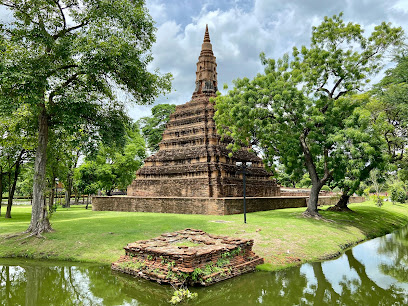
Wat Tha Ka Rong
Discover the tranquility of Wat Tha Ka Rong, a beautiful Buddhist temple in Ayutthaya, where history and spirituality converge in a serene atmosphere.
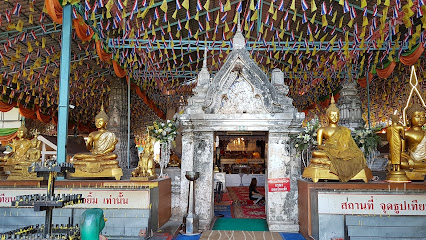
Japanese Village
Discover the captivating cultural exchange at the Japanese Village in Ayutthaya, where history and tradition come alive in a serene setting.
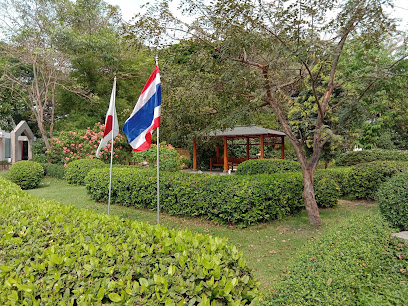
Wat Thammikarat
Discover the tranquility and historical significance of Wat Thammikarat, one of Ayutthaya's finest Buddhist temples, a must-visit for cultural enthusiasts.
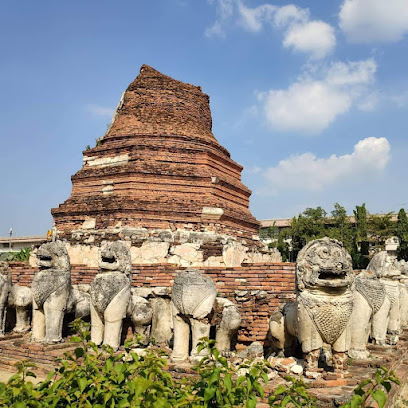
Chao Sam Phraya National Museum
Explore Thailand's rich heritage at Chao Sam Phraya National Museum, home to ancient treasures and captivating stories from the Ayutthaya Kingdom.
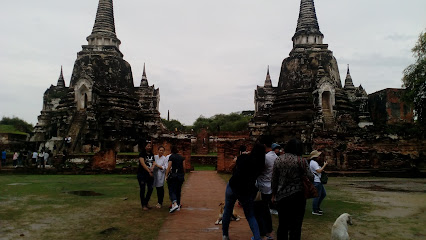
Unmissable attractions to see
Wat Tha Ka Rong
Explore the tranquil beauty of Wat Tha Ka Rong, a hidden gem in Ayutthaya showcasing stunning architecture and rich Buddhist heritage.
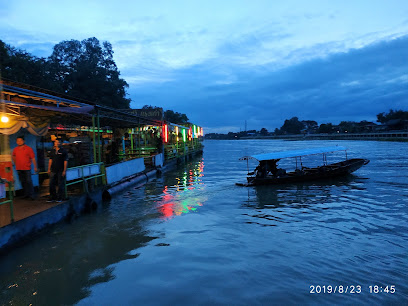
Ayutthaya Elephant Palace & Royal Kraal
Discover the enchanting world of elephants at Ayutthaya Elephant Palace & Royal Kraal, a unique cultural experience in Thailand's historic city of Ayutthaya.
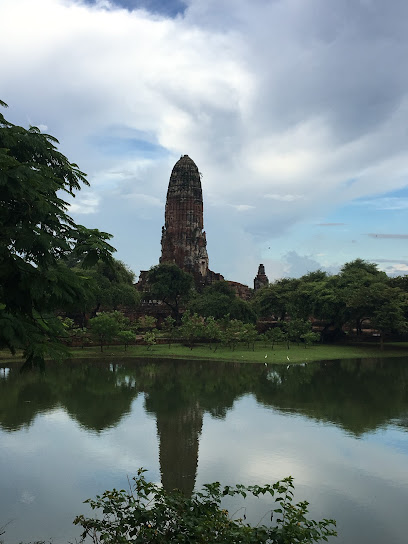
Wat Khun Inthapramun
Explore Wat Khun Inthapramun, a breathtaking Buddhist temple in Ang Thong, Thailand, featuring a giant reclining Buddha and serene surroundings.
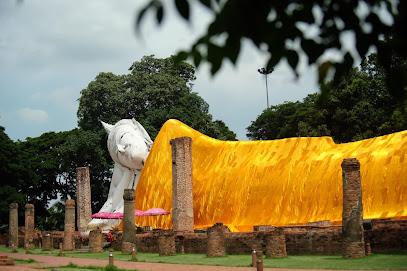
Chao Phrom Market
Experience the flavors and culture of Thailand at Chao Phrom Market, a vibrant market in Ayutthaya filled with local delights and crafts.
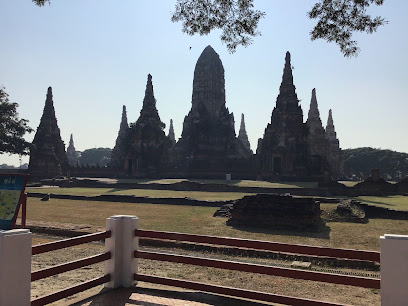
Wat Niwet Thammaprawat Ratchaworawihan
Discover the tranquil beauty of Wat Niwet Thammaprawat Ratchaworawihan, a unique Buddhist temple blending Gothic architecture with serene riverside charm.
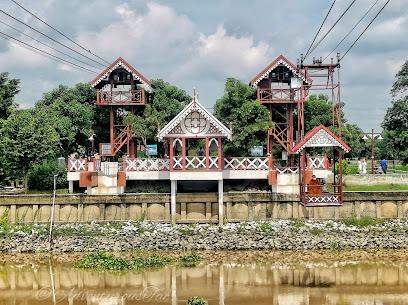
Japanese Village
Explore Japanese Village in Ayutthaya, a serene fusion of nature and culture, showcasing the historical ties between Japan and Thailand.
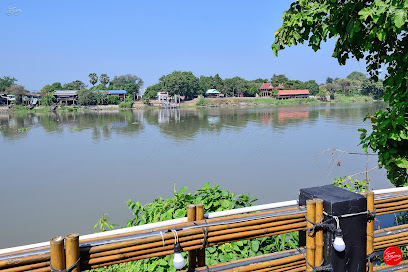
Wat Phukhao Thong
Discover the serene beauty and rich history of Wat Phukhao Thong, a stunning Buddhist temple in Ayutthaya, Thailand's ancient capital.
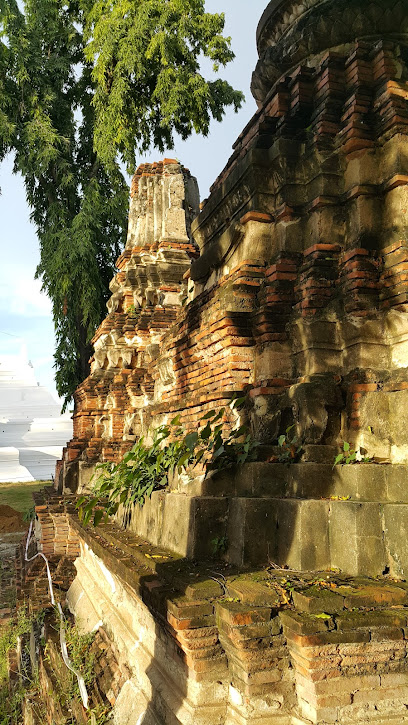
Wat Kasattrathirat Worawihan
Explore the tranquil beauty and cultural richness of Wat Kasattrathirat Worawihan, a must-visit Buddhist temple in Ayutthaya, Thailand.
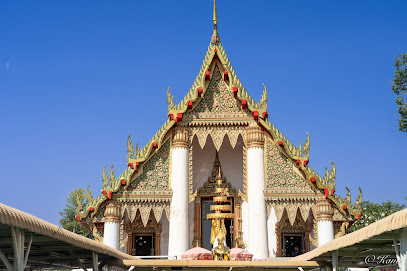
Wat Phra Ngam (Portal of Time)
Discover the ethereal beauty of Wat Phra Ngam, a historical landmark where nature and architecture harmoniously intertwine in Ayutthaya.
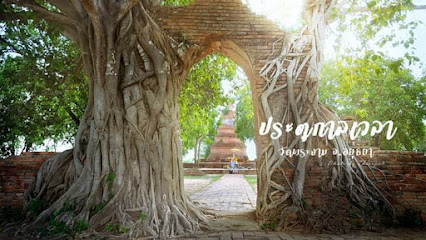
Chedi Wat Sam Pluem
Discover the architectural beauty and historical significance of Chedi Wat Sam Pluem, a must-visit pagoda in Ayutthaya's rich cultural landscape.
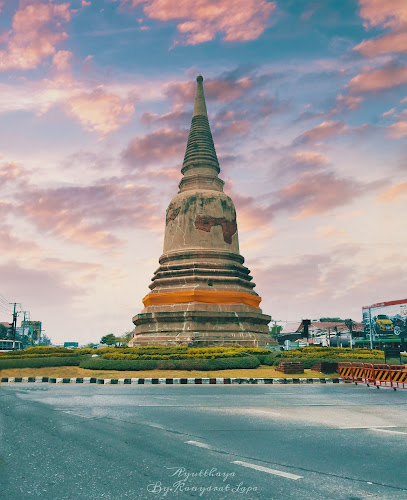
Wat Choeng Tha
Explore the tranquil beauty of Wat Choeng Tha, a stunning Buddhist temple in Ayutthaya, where history and spirituality intertwine.
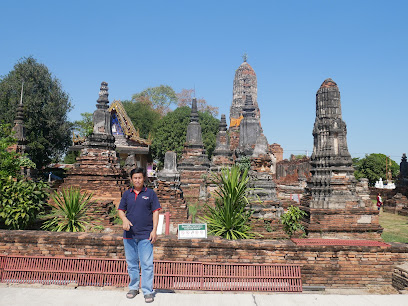
Wat Worachet
Explore Wat Worachet, a hidden gem in Ayutthaya that showcases Thailand's Buddhist heritage and architectural beauty.
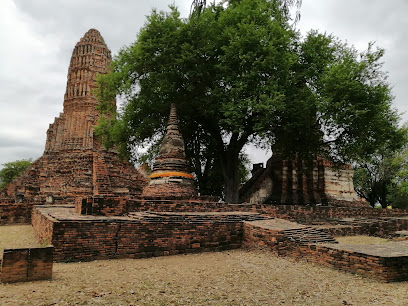
King Naresuan Monument
Explore the grandeur of the King Naresuan Monument in Ayutthaya, a majestic tribute to Thailand's heroic history and cultural heritage.
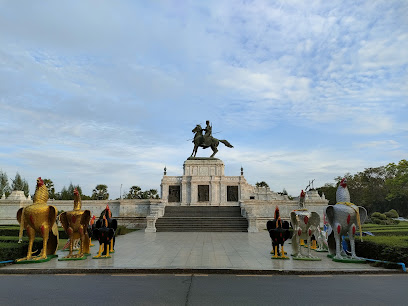
Wat Khruttharam
Explore the serene beauty and spiritual significance of Wat Khruttharam, a must-visit Buddhist temple in historic Ayutthaya, Thailand.
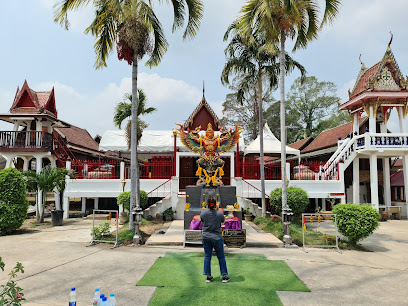
Wat Tum
Experience the tranquility and cultural richness of Wat Tum, a serene Buddhist temple in Ayutthaya, Thailand, perfect for spiritual reflection and exploration.
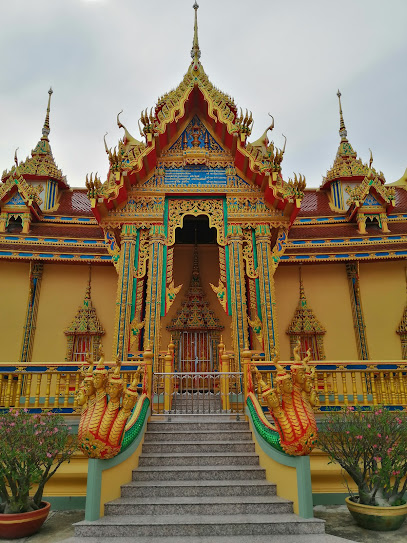
Essential places to dine
Ayutthaya Retreat
Experience authentic Thai cuisine in a serene setting at Ayutthaya Retreat, where history meets culinary excellence.
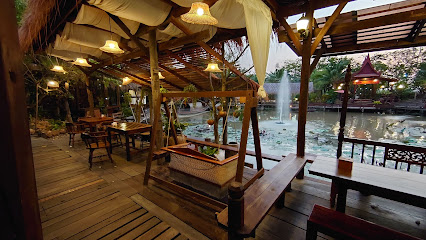
สวนอาหารไทรทองริเวอร์ Saithongriver Restaurant
Savor authentic Thai flavors amidst stunning riverside views at Saithongriver Restaurant – a must-visit culinary destination in Ayutthaya.
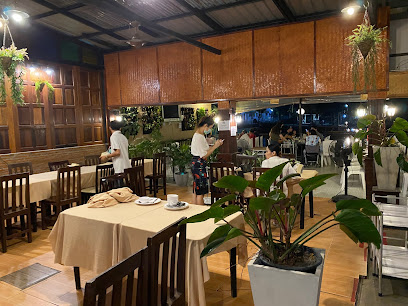
Pae Krung Kao Restaurant
Experience authentic Thai flavors at Pae Krung Kao Restaurant in Ayutthaya - a culinary journey through Thailand's rich heritage.
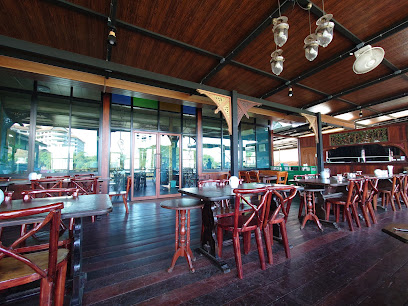
De Riva Ayothaya
Experience authentic Thai cuisine at De Riva Ayothaya, where every dish tells a story amidst stunning views in historical Phra Nakhon Si Ayutthaya.
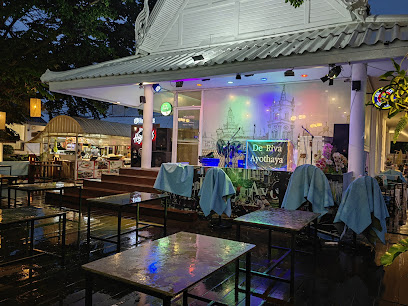
Satang
Experience the essence of authentic Thai flavors at Satang in Phra Nakhon Si Ayutthaya—where culinary tradition meets modern hospitality.
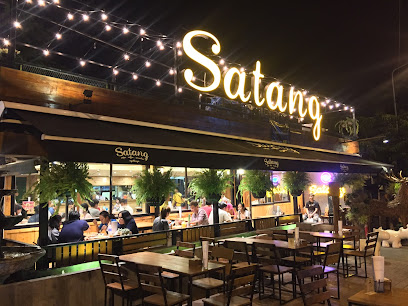
The Wine Ayudhya
Discover authentic Thai cuisine at The Wine Ayudhya in historic Ayutthaya - a perfect blend of taste and tradition.
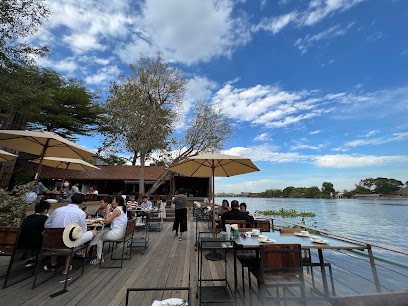
Malakor Kitchen and Cafe ร้านมะละกอ
Discover authentic Thai flavors at Malakor Kitchen and Cafe in Phra Nakhon Si Ayutthaya - a culinary delight waiting for you.
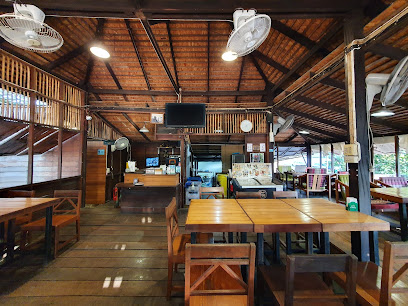
Thanam View Restaurant Ayutthaya
Experience authentic Thai cuisine with breathtaking views at Thanam View Restaurant in historic Ayutthaya.
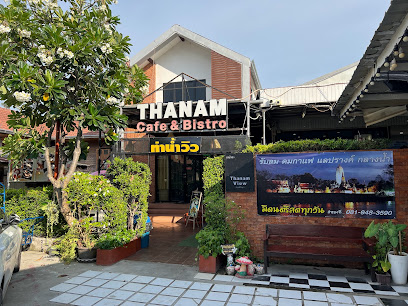
Ayutthayarom Restaurant
Experience authentic Thai cuisine at Ayutthayarom Restaurant in historic Ayutthaya – where every meal tells a story.
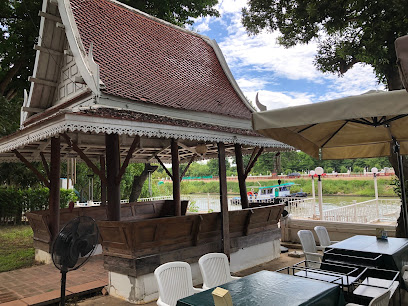
Civilize Ayutthaya
Discover authentic Thai cuisine at Civilize Ayutthaya, where every dish tells a story and every bite is a celebration of flavor.
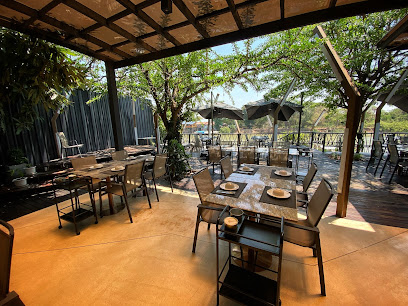
Kaowlaor
Experience authentic Thai flavors at Kaowlaor in Phra Nakhon Si Ayutthaya – perfect for families and food lovers alike.
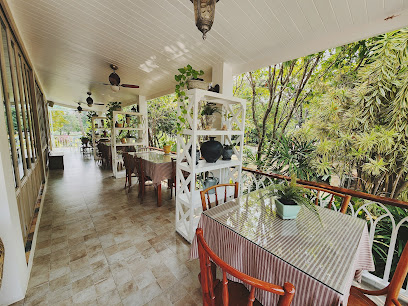
Raan Tha Luang Dinner Cruise
Experience authentic Thai cuisine aboard Raan Tha Luang Dinner Cruise while enjoying breathtaking views of Phra Nakhon Si Ayutthaya's historic landscape.
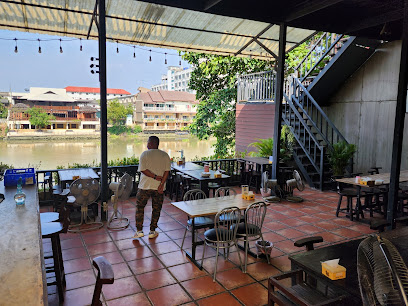
Kaffa Bistro Ayutthaya
Discover the exquisite flavors of European cuisine at Kaffa Bistro in Ayutthaya – a must-visit dining destination for every traveler.
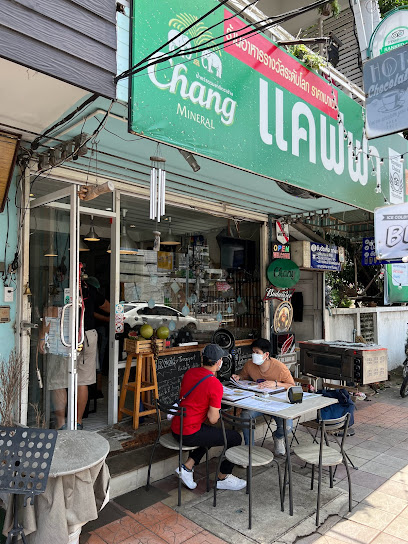
Moakmai Cafe & Restaurant
Discover Moakmai Cafe & Restaurant - A Fusion of Italian Cuisine and Local Flavors in Historic Ayutthaya.
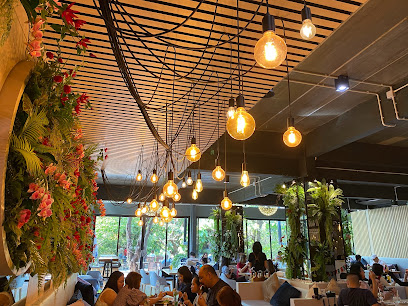
BORAN Cafe and Restaurant
Experience authentic Thai cuisine in a charming setting at BORAN Cafe and Restaurant in Phra Nakhon Si Ayutthaya.
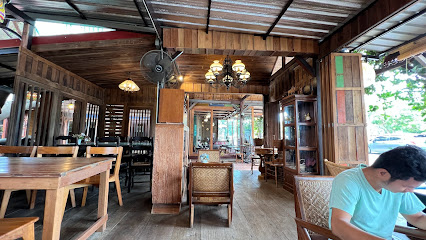
Markets, malls and hidden boutiques
Robinson Ayutthaya
Discover the vibrant shopping experience at Robinson Ayutthaya, where modern retail meets Thai culture in a historic setting.
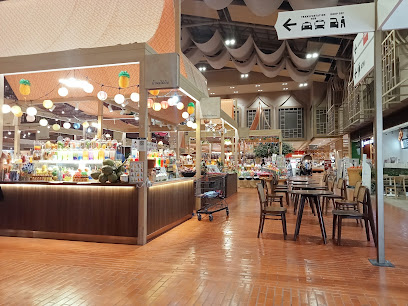
Central Ayutthaya
Discover Central Ayutthaya: A Dynamic Shopping Mall Blending Local Culture and Modern Retail in Thailand's Historical Heart.
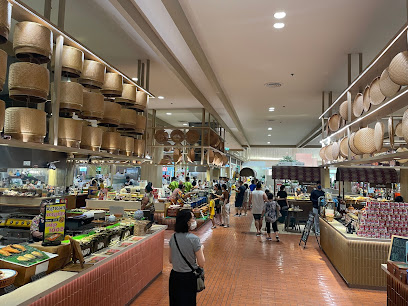
Premium Outlet (Ayutthaya)
Discover unbeatable shopping experiences at Premium Outlet Ayutthaya, where luxury meets affordability in a vibrant retail environment.
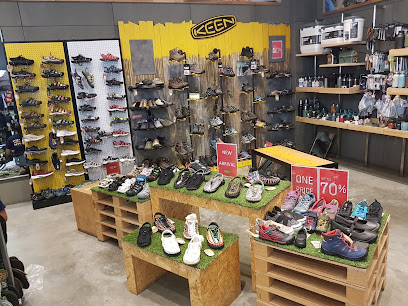
Amporn Department Store
Discover authentic local flavors and essentials at Amporn Department Store, a vibrant shopping hub in Ayutthaya offering convenience and culture.
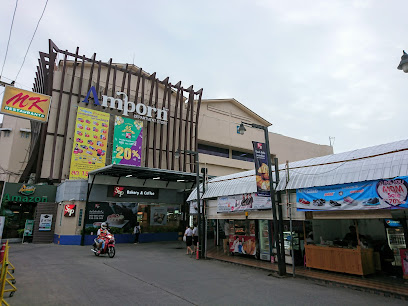
Balloon Ayutthaya Night Plaza
Experience the lively Balloon Ayutthaya Night Plaza, where shopping meets culinary delights in a vibrant night market atmosphere.
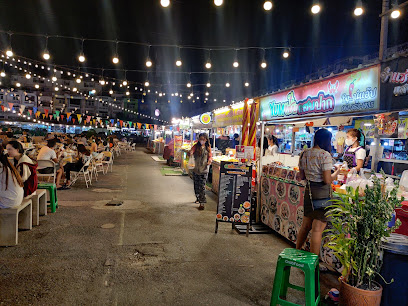
Ayutthaya City Park
Experience the perfect combination of beauty and tranquility at Ayutthaya City Park, your serene retreat in the heart of Thailand's historic Ayutthaya.
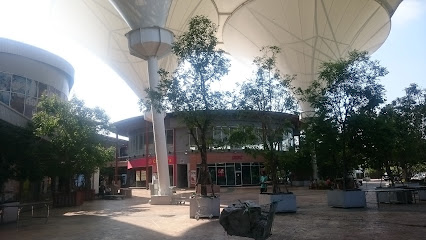
Homglin
Experience the charming atmosphere and local flavors at Homglin, a delightful coffee shop in the heart of Ayutthaya.
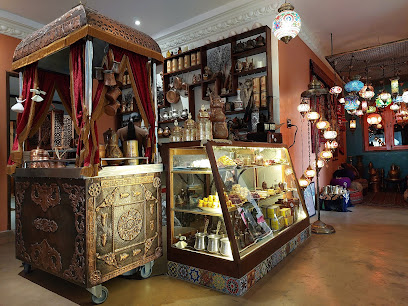
Campamento de elefantes de Ayutthaya
Experience the beauty and majesty of elephants at Ayutthaya's enchanting elephant camp, a unique blend of education and interaction.
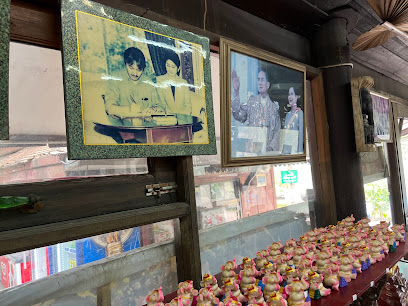
420 Exclusive Cannabis Shop Ayutthaya (ร้านกัญชา อยุธยา)
Explore the vibrant cannabis culture at 420 Exclusive Cannabis Shop in Ayutthaya, Thailand, offering a diverse range of quality products and welcoming atmosphere.
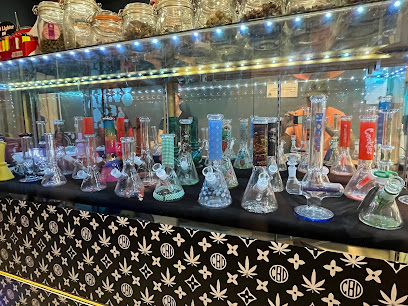
ทุกอย่าง10บาทอยุธยา
Discover unique souvenirs and gifts at ทุกอย่าง10บาทอยุธยา, where everything is just 10 baht, in the heart of Ayutthaya.
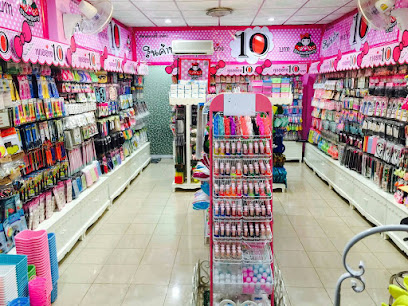
ร้านลูกน้ำ ของชำร่วย จ.อยุธยา การ์ดแต่งงาน ของรับไหว้ ราคาถูก
Explore ร้านลูกน้ำ in Ayutthaya for unique wedding souvenirs, gifts, and greeting cards that capture the local culture at affordable prices.
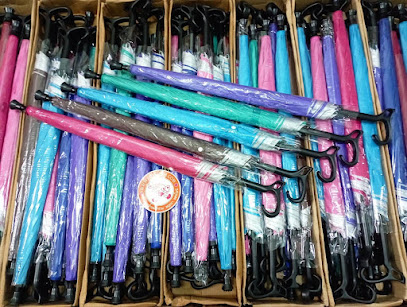
UNIQLO Central Ayutthaya Store
Discover the latest fashion trends and timeless styles at UNIQLO Central Ayutthaya, where quality meets affordability in a vibrant shopping atmosphere.
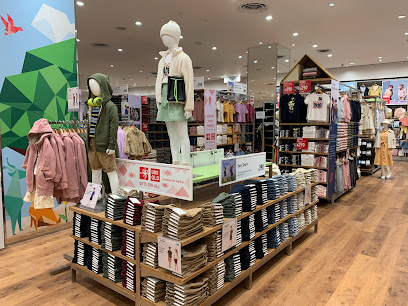
บ้านลุงชาย อยุธยา
Discover the flavors of Thailand at Ban Lung Chai, a charming grocery store in Ayutthaya offering fresh produce and local snacks.
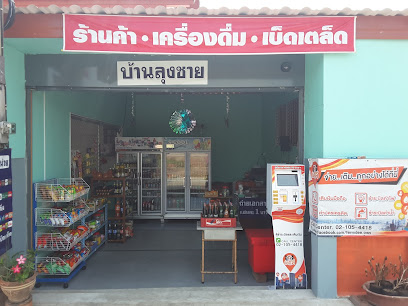
ปลาตะเพียนใบลานป้าวัน
Explore the charm of Thailand through unique handcrafted souvenirs at ปลาตะเพียนใบลานป้าวัน, a treasured spot in Ayutthaya.
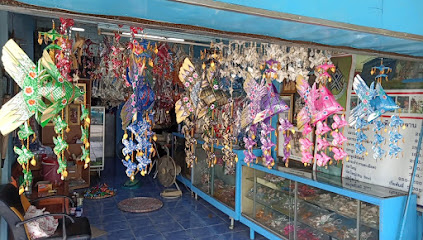
SAAN
Discover the cultural treasures of Ayutthaya at SAAN, where unique souvenirs meet authentic craftsmanship.
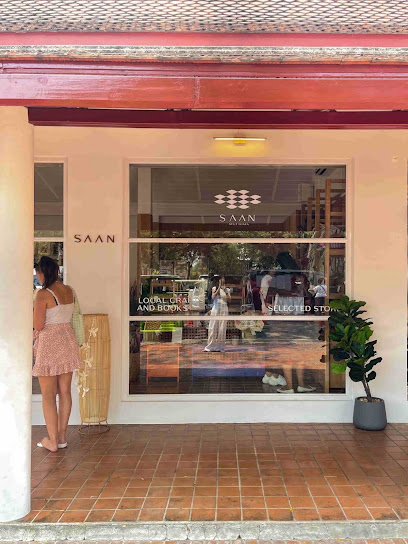
Essential bars & hidden hideouts
Steel Bar อยุธยา
Experience the vibrant nightlife at Steel Bar in Ayutthaya, serving unique cocktails in a culturally rich atmosphere.
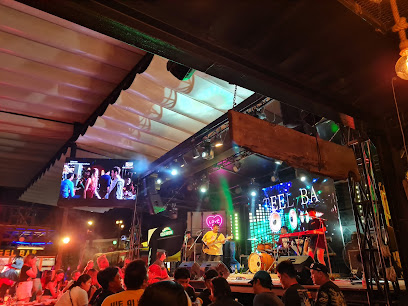
BROWN ALE AYUTTHAYA
Discover the vibrant nightlife at Brown Ale Ayutthaya, where refreshing drinks and a lively atmosphere await in a historic setting.
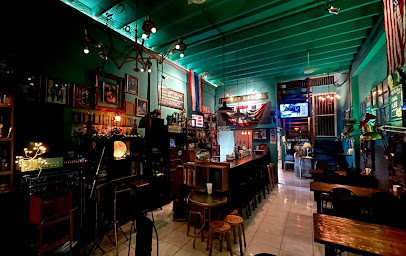
Lung nuat bar
Experience the vibrant flavors of Lung Naut Bar in Ayutthaya, where delectable dishes and refreshing drinks await in a lively atmosphere.
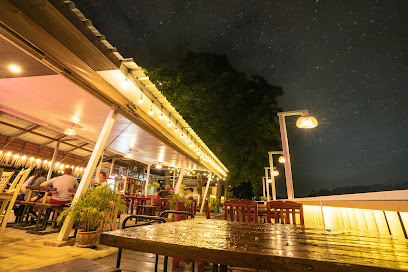
Planet Earth Bar & Restaurant
Experience the vibrant nightlife at Planet Earth Bar & Restaurant in Ayutthaya, Thailand, where delicious drinks and a welcoming atmosphere await.
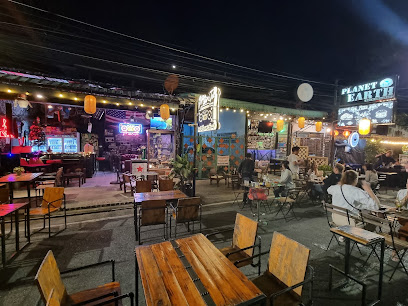
The Boss Ayutthaya
Experience the vibrant nightlife and delicious cuisine at The Boss Ayutthaya, the ultimate bar and restaurant for tourists.
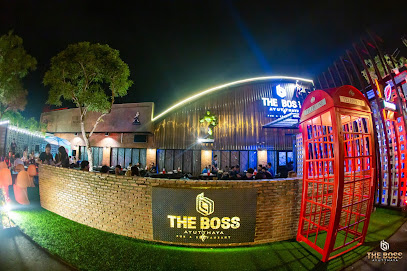
Camping Bar Ayutthaya
Experience the perfect blend of relaxation and adventure at Camping Bar Ayutthaya, where culinary delights meet historical wonders.
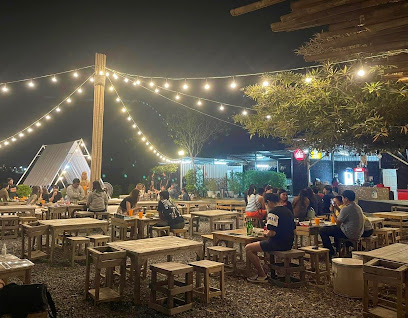
Fullmoon Bar & Restaurant by MJ
Experience the vibrant nightlife of Ayutthaya at Fullmoon Bar & Restaurant by MJ, offering a blend of delicious food and refreshing cocktails.
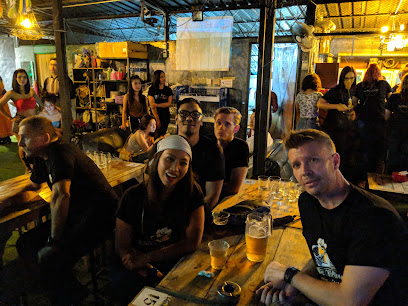
Zaapbar Ayutthaya
Discover the vibrant nightlife at Zaapbar Ayutthaya, a perfect blend of refreshing drinks and lively ambiance in the heart of Thailand's historical gem.
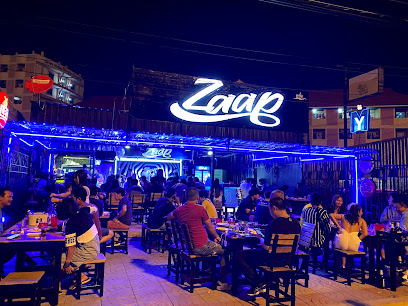
Khaosan Bar Ayutthaya
Experience the lively atmosphere of Khaosan Bar in Ayutthaya, where great drinks, live music, and a warm crowd await.
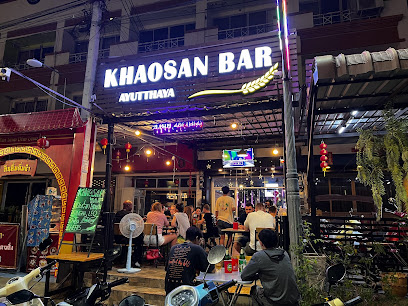
Red Cup AYU
Discover the vibrant nightlife at Red Cup AYU, a must-visit bar in Phra Nakhon Si Ayutthaya, offering refreshing drinks and a lively atmosphere.
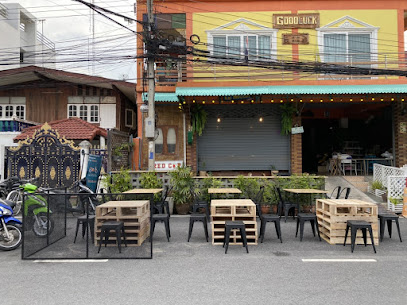
คงเจริญ Bar & Rooftop
Discover the vibrant nightlife of Phra Nakhon Si Ayutthaya at คงเจริญ Bar & Rooftop, where stunning views and delightful drinks await.
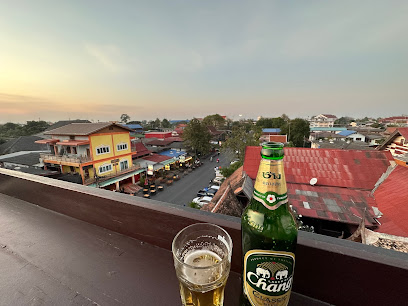
Seven street bar
Experience the vibrant nightlife at Seven Street Bar, where delicious drinks and friendly vibes create the perfect evening ambiance in Ayutthaya.
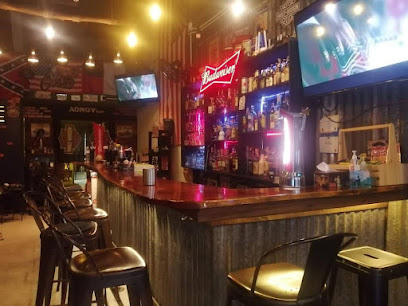
SEEN
Experience the vibrant nightlife at SEEN Bar in Ayutthaya, where innovative cocktails and local charm come together for an unforgettable evening.
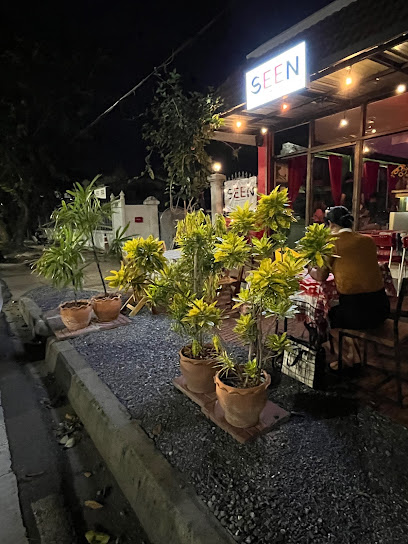
Dark House Bar
Discover the lively spirit of Dark House Bar in Ayutthaya, where exquisite cocktails meet a vibrant atmosphere perfect for relaxation.
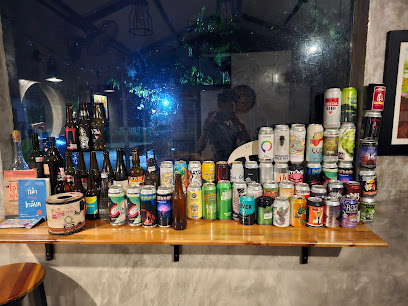
Kith
Experience the vibrant nightlife of Ayutthaya at Kith, a bar that offers a unique blend of local flavors and a lively atmosphere.
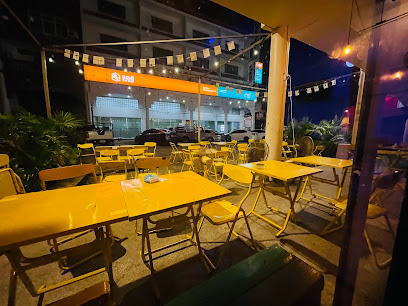
Local Phrases about Ayutthaya Province
-
- Helloสวัสดี
[sawasdee] - Goodbyeลาก่อน
[laa kon] - Yesใช่
[chai] - Noไม่
[mai] - Please/You're welcomeโปรด/ยินดี
[proht/yindee] - Thank youขอบคุณ
[kop khun] - Excuse me/Sorryขอโทษ
[khor toht] - How are you?สบายดีไหม
[sabai dee mai] - Fine. And you?สบายดีครับ/ค่ะ คุณล่ะ
[sabai dee khrap/kha kun la] - Do you speak English?คุณพูดภาษาอังกฤษได้ไหม
[khun poot pah saa ang-grit dai mai] - I don't understandฉันไม่เข้าใจ
[chan mai khao jai]
- Helloสวัสดี
-
- I'd like to see the menu, pleaseฉันขอดูเมนูหน่อย
[chan khor doo menu noi] - I don't eat meatฉันไม่กินเนื้อ
[chan mai gin nuea] - Cheers!ชัยโชค
[chai chok] - I would like to pay, pleaseฉันต้องการจ่ายเงิน
[chan tong gaan jai ngern]
- I'd like to see the menu, pleaseฉันขอดูเมนูหน่อย
-
- Help!ช่วยด้วย
[chuay duay] - Go away!ไปไกลๆ
[pai glai glai] - Call the Police!โทรตำรวจ
[toh tamruat] - Call a doctor!โทรหมอ
[toh mor] - I'm lostฉันหลงทาง
[chan long tang] - I'm illฉันไม่สบาย
[chan mai sabai]
- Help!ช่วยด้วย
-
- I'd like to buy...ฉันต้องการซื้อ...
[chan tong gaan seu... ] - I'm just lookingฉันเพียงแค่ดู
[chan piang kae doo] - How much is it?ราคาเท่าไหร่
[ra kaa tao rai] - That's too expensiveแพงเกินไป
[paeng geen pai] - Can you lower the price?ลดราคาได้ไหม
[lot ra kaa dai mai]
- I'd like to buy...ฉันต้องการซื้อ...
-
- What time is it?เวลาเท่าไหร่
[welaa tao rai] - It's one o'clockเป็นโมงเดียว
[pen mong diao] - Half past (10)ครึ่งจุด
[khrung joot] - Morningเช้า
[chao] - Afternoonบ่าย
[bai] - Eveningเย็น
[yen] - Yesterdayเมื่อวาน
[meua wan] - Todayวันนี้
[wan nee] - Tomorrowพรุ่งนี้
[phrung nee] - 1หนึ่ง
[neung] - 2สอง
[song] - 3สาม
[sam] - 4สี่
[si] - 5ห้า
[ha] - 6หก
[hok] - 7เจ็ด
[jet] - 8แปด
[paet] - 9เก้า
[kao] - 10สิบ
[sip]
- What time is it?เวลาเท่าไหร่
-
- Where's a/the...?...อยู่ที่ไหน
[... yu tee nai] - What's the address?ที่อยู่อยู่ที่ไหน
[tee yu yu tee nai] - Can you show me (on the map)?คุณแสดงให้ฉันดูได้ไหม
[khun sa-dang hai chan doo dai mai] - When's the next (bus)?รถเมล์ต่อไปเวลาเท่าไหร่
[rodt mel tor pai welaa tao rai] - A ticket (to ....)ตั๋ว (ไป...)
[dtua (pai...)]
- Where's a/the...?...อยู่ที่ไหน
History of Ayutthaya Province
-
Ayutthaya was founded in 1350 by King U Thong, who declared it the capital of his kingdom. The city was strategically located at the confluence of three rivers: the Chao Phraya, the Lopburi, and the Pa Sak, making it an ideal hub for trade and commerce.
-
Between the 14th and 18th centuries, Ayutthaya thrived as a cosmopolitan hub, attracting traders from Persia, India, China, Japan, Portugal, the Netherlands, and France. The city was known for its grand architecture, including impressive temples and palaces, and its rich cultural heritage.
-
The kingdom of Ayutthaya faced numerous invasions from neighboring Burma. The most significant of these conflicts occurred in 1569, when the Burmese forces captured and briefly occupied the city. However, Ayutthaya eventually regained its independence and continued to flourish.
-
In 1767, the Burmese launched a devastating attack on Ayutthaya, leading to the city's fall. The invaders ransacked and burned down much of the city, marking the end of the Ayutthaya Kingdom. This event led to a period of chaos and the eventual rise of the Thonburi Kingdom under King Taksin.
-
Today, the ruins of Ayutthaya are a UNESCO World Heritage Site, featuring remarkable structures such as Wat Mahathat, known for the iconic Buddha head entwined in tree roots, and Wat Phra Si Sanphet, the former royal temple. These ruins offer a glimpse into the grandeur and historical significance of the ancient city.
-
Ayutthaya is renowned for its cultural heritage, including traditional Thai arts, crafts, and cuisine. The Ayutthaya Historical Park hosts several festivals throughout the year, such as the Ayutthaya World Heritage Fair, celebrating the region's rich history and traditions.
-
The Ayutthaya Elephant Kraal is a historic site where elephants were trained and tamed for royal and military use. The kraal is a fascinating testament to the deep connection between Thai culture and elephants, which were considered symbols of power and prosperity.
Ayutthaya Province Essentials
-
Ayutthaya Province is located about 80 kilometers north of Bangkok. The most convenient way to get there is by taking a train from Hua Lamphong Railway Station in Bangkok to Ayutthaya Station. The journey typically takes around 1.5 to 2 hours. Alternatively, you can take a bus or minivan from the Mo Chit Bus Terminal in Bangkok, which also takes about 1.5 to 2 hours. For a more scenic route, you can take a boat trip along the Chao Phraya River from Bangkok to Ayutthaya, which usually takes around 3 to 4 hours.
-
Once in Ayutthaya, you can explore the province using various modes of transportation. Tuk-tuks are widely available and are a convenient way to get around town. Bicycles and motorbikes can be rented from numerous shops near the train station and are ideal for exploring the historical park. For a more leisurely experience, you can also hire a boat to tour the waterways surrounding the city. Public buses and songthaews (shared taxis) are available for longer distances within the province.
-
The official currency in Thailand is the Thai Baht (THB). Credit cards are accepted in most hotels, restaurants, and larger shops, but it is advisable to carry cash, especially when visiting smaller establishments and local markets. ATMs are plentiful in Ayutthaya, and currency exchange services are available at banks and exchange booths in tourist areas.
-
Ayutthaya is generally a safe destination for tourists, but it is always wise to take standard precautions. Avoid walking alone in poorly lit areas at night and keep an eye on your belongings in crowded places. Petty crime such as pickpocketing can occur, particularly in busy tourist spots. There are no specific high-crime neighborhoods targeting tourists, but vigilance is always recommended.
-
In case of emergency, dial 191 for police assistance and 1669 for medical emergencies. Ayutthaya has several hospitals and clinics that can provide medical care. It is advisable to have travel insurance that covers medical emergencies. Pharmacies are available throughout the city for minor health issues and over-the-counter medications.
-
Fashion: Do dress modestly, especially when visiting temples. Shoulders and knees should be covered. Avoid wearing revealing clothing. Religion: Do respect local customs and traditions. Remove your shoes before entering temples and avoid pointing your feet at religious objects. Public Transport: Do be respectful and give up your seat to elderly passengers. Don’t eat or drink on public transport. Greetings: Do greet people with a wai (a slight bow with palms pressed together). Avoid touching people on the head. Eating & Drinking: Do try local delicacies and accept food offerings graciously. Don’t refuse hospitality, as it is considered impolite.
-
To experience Ayutthaya like a local, visit the local markets such as the Ayothaya Floating Market where you can buy fresh produce and traditional Thai goods. Engage with locals, as they are often friendly and willing to share stories about the area's history and culture. Don't miss visiting the historical park, home to numerous ancient temples and ruins. For a unique experience, consider taking a sunset boat tour around the city's rivers and canals.
Trending Landmarks in Ayutthaya Province
-
Wat Yai Chai Mongkhon
-
Wat Mahathat
-
Wat Chaiwatthanaram
-
Ayothaya Floating Market
-
Wat Phra Si Sanphet
-
Bang Pa-In Palace
-
Wat Na Phra Meru Rachikaram
-
Wat Lokkayasutha
-
Wihan Phra Mongkhon Bophit
-
Ayutthaya Historical Park Office
-
Ayutthaya Elephant Palace & Royal Kraal
-
Wat Tha Ka Rong
-
Japanese Village
-
Wat Thammikarat
-
Chao Sam Phraya National Museum
Nearby Cities to Ayutthaya Province
-
Things To Do in Bangkok
-
Things To Do in Samut Prakan
-
Things To Do in Kanchanaburi
-
Things To Do in Pattaya
-
Things To Do in Nakhon Ratchasima
-
Things To Do in Rayong
-
Things To Do in Hua Hin
-
Things To Do in Trat
-
Things To Do in Sukhothai
-
Things To Do in Battambang
-
Things To Do in Loei
-
Things To Do in Siem Reap
-
Things To Do in Koh Kong
-
Things To Do in Udon Thani
-
Things To Do in Hpa-An













